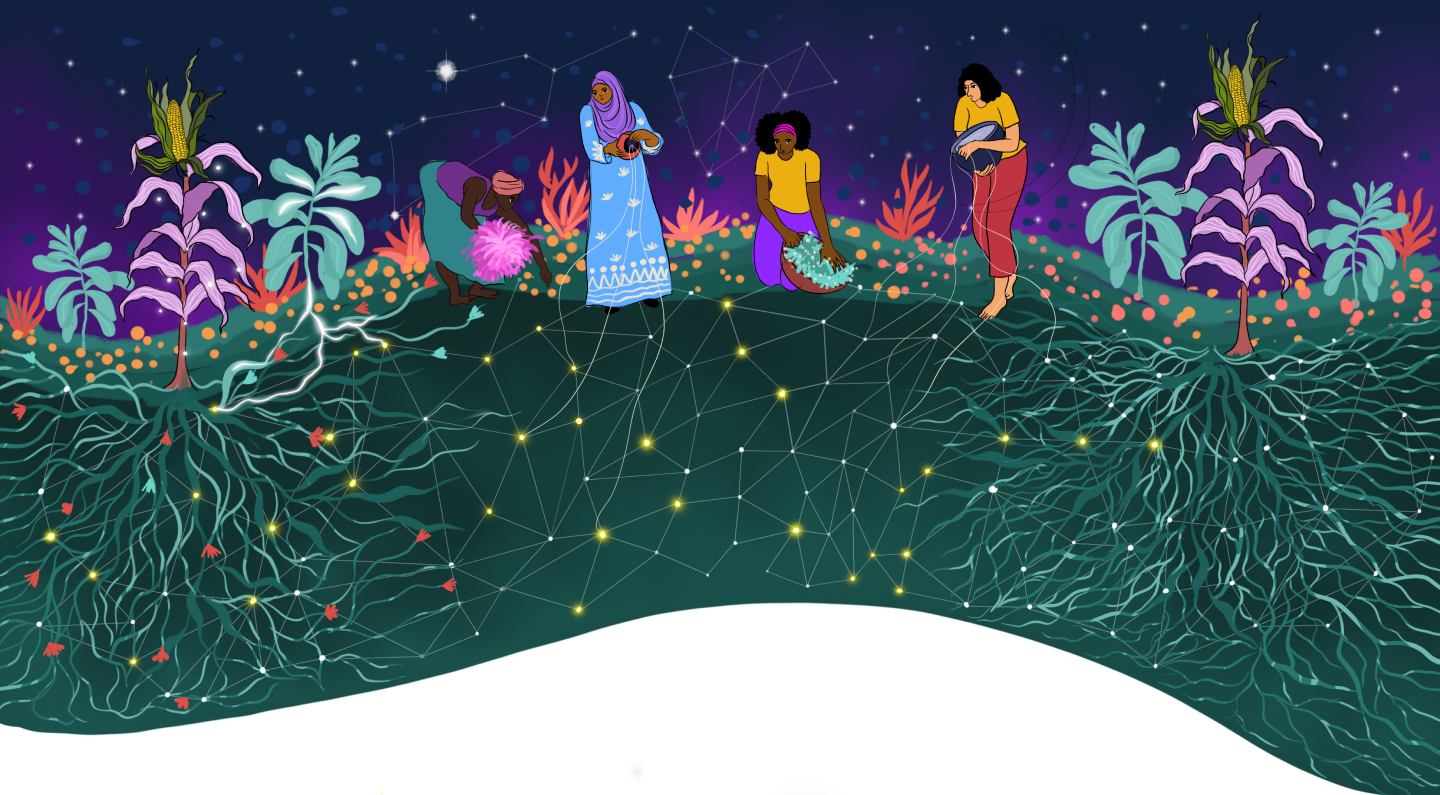The strategic directions of the WHRDIC are:
Resource hub and Knowledge building by and for WHRDs, feminists, trans and non-binary defenders
Through our website and by conducting and compiling research and analysis, we serve as a resource hub by and for WHRDs, feminists, trans and non-binary defenders, particularly those in the Global South and most at the margins, providing cross-regional, cross-issue, and cross-movement intersectional feminist knowledge and resources on:
- New and emerging issues affecting WHRDs, feminists, trans and non-binary defenders, our organising and our movements.
- The violations of the right to defend rights experienced by WHRDs, feminists, trans and non-binary defenders.
- Practices and tools which enable and sustain organising by WHRDs, feminists, trans and non-binary defenders, including on protection, crisis response and collective care.
Some of the WHRD- IC’s cutting-edge materials are:
Connection and collaboration among WHRDs, feminists, trans and non-binary defenders at the intersections of our organising and movements
By leveraging our positioning at the intersection of the diverse regions, issues, sectors, and movements, in which WHRDs, feminists, trans and non-binary defenders are organising, we connect and build a strong transnational community of defenders to:
- Build relationships and connections with each other to overcome isolation and provide mutual support.
- Enable learning and exchange of experiences and practices among defenders
- Collectively strategise to more effectively respond to emerging threats and opportunities for the right to defend rights.
- Build common agendas and collaborate effectively together to advance those agendas.
Connecting and building community among defenders is an important form of resourcing for our movements and key to sustaining our collective organising.
WHRD-driven international advocacy to influence policy processes on the right to defend rights
A number of our Coalition members monitor and directly participate in the UN human rights system policy processes related to the work of WHRDs. The Coalition itself focuses on linking WHRDs, feminists, trans and non-binary defenders and their organisations with the UN and other related international and regional policy processes on the right to defend rights to ensure that WHRDs are represented in and influencing these processes and mechanisms. We also coordinate advocacy among the WHRD-IC members for greater collective advocacy impact.
We do this by:
- Presence and participation in key advocacy spaces strategically selected by the WHRD-IC members, including submission of statements on the global situation of WHRDs or delivery of oral statements on relevant global issues.
- Mobilising resources and providing accompaniment support for WHRDs, feminists, trans and non-binary defenders, particularly in the Global South and most at the margins, to attend key UN policy spaces such as the HRC or CSW.
- Knowledge sharing among WHRDs, feminists, trans and non-binary defenders on how relevant international policy processes and mechanisms function and how to engage with them.
- Sharing and amplifying policy papers, briefs and statements produced by Coalition members in support of the right to defend rights in key UN and other international policy processes.
- Close, strategic, systematic and sustainable collaboration with the UN Special Rapporteur on the situation of Human Rights Defenders through submitting relevant reports, analysis and policy recommendations on issues affecting WHRDs, feminists, trans and non-binary defenders and their work.
Strategic communications and Collective mobilisation with and for WHRDs, feminists, trans and non-binary defenders
Our work in this area responds directly to requests for support from the WHRDs, feminists, trans and non-binary defenders and their organisations who are members of our Coalition either on behalf of themselves or for defenders in the networks and collectives of which they are a part. We also leverage the work of our members who have the capacity and expertise to carry out the detailed background work on individual cases of WHRDs at risk to then collectively determine the most appropriate response from the Coalition.
This includes:
- Sharing and amplifying the statements and urgent appeals produced by Coalition members through the transnational platform of our website and other communication channels.
- Concrete solidarity actions in support of WHRDs, feminists, trans and non-binary defenders at risk such as letter writing to decision makers and influencers or imprisoned defenders.
- Joint communication campaigns in support of WHRDs, feminists, trans and non-binary defenders, their collective contributions to human rights and justice, and to respond to the risks they face, and their protection and care needs and practices.

